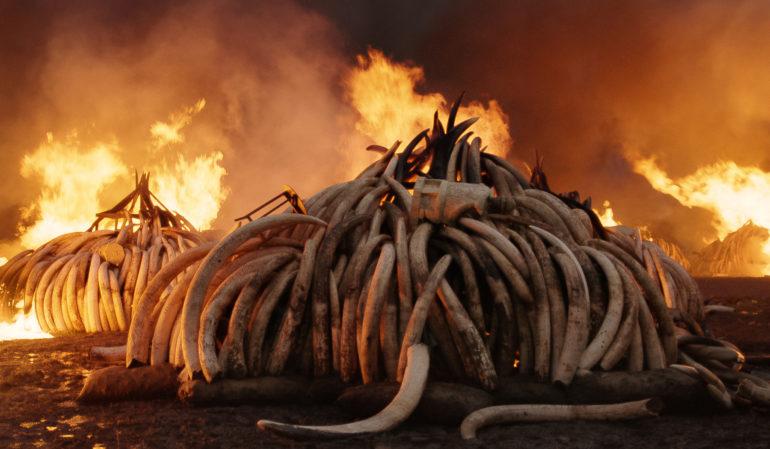Berlin Fest’s ‘Anthropocene’ Looks at Human Impact on the Environment
By Nick Clement
LOS ANGELES (Variety.com) – The documentary “Anthropocene: The Human Epoch,” which screens as a Berlinale Special, exists as one part of a multimedia project, conceived by a trio of passionate and dedicated filmmakers: Jennifer Baichwal, Nicholas de Pencier and Edward Burtynsky. The Canadian production enlisted Oscar-winner Alicia Vikander for voice-over duties and serves as one component of a vast spread of multimedia disciplines, with all efforts exploring the intense impact that humans have made on the Earth, in any number of geological ways.
Consisting of the documentary, two museum exhibitions, a photographic essay, a series of film installations, an art book and a virtual reality component, it’s a project on a monumental scale, and one with significant social purpose. “This documentary partially serves as a call to action,” says Burtynsky. “We’re facing an existential threat, which is hard to act on immediately, but it’s something we need to be aware of because time is running out.” The doc also explores the constantly shifting elemental landscape that comprise the planet, evoking Werner Herzog’s “Lessons of Darkness,” which Burtynsky cites as inspiration. “We wanted to create something that was light on words, heavy on visuals, with a great use of sound.”
Made without a traditional script, more than 200 hours of footage was captured from 43 locations, spanning 20 countries, and six continents, and include concrete seawalls in China that now cover 60% of the mainland coast, the biggest terrestrial machines ever built in Germany, the potash mines in Russia’s Ural Mountains and surreal lithium evaporation ponds in the Atacama desert.
“This is science and art as activism, and we have a strong philosophical approach to filmmaking,” says Baichwal. “We wanted to take a non-didactic approach to this material, and create a different way of immersing the audience in a different world. It really was like putting together the pieces to a massive puzzle.”
“Anthropocene: The Human Epoch” took four years to complete, and is the third in a trilogy of thematically-linked works, which includes 2006’s “Manufactured Landscapes” and 2013’s “Watermark,” all of which deal with how humans treat the environment. “We’re trying to rock your world in terms of showing the vast scale of what humans do to the world,” says de Pencier.
“Our best hope is that audiences will have a visceral understanding of the impact that humans have made on the planet,” says de Pencier. “People always think that bad stuff is happening somewhere else as little blips on the radar, but in reality, most of it has a direct impact on our daily lives, whether we realize it or not.”

